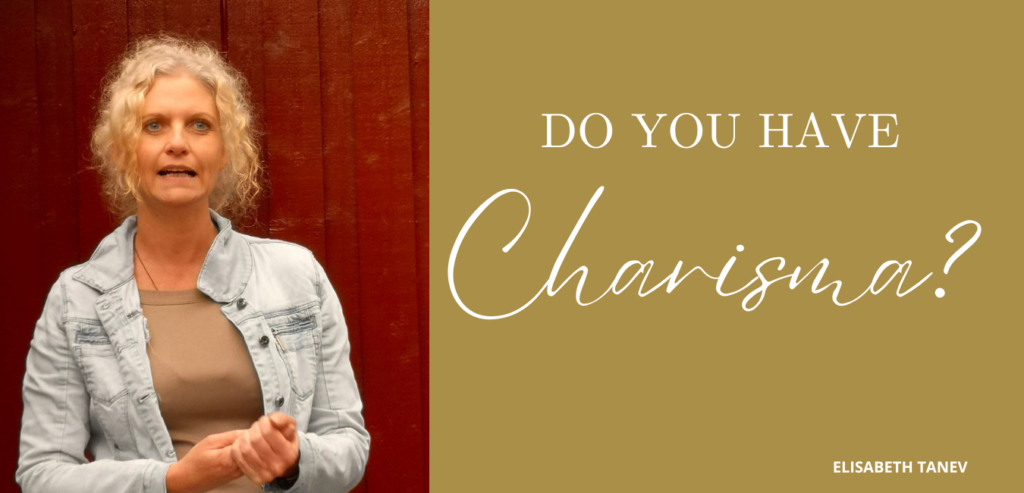Abid Raja is probably the closest we’ll get to a pop star of politics. As a local politician, I was lucky enough to join him on a visit to a high school in Lørenskog this week. The students were having a personal development week, and Abid was interviewed about his book “Min Skyld.” It’s easy to get carried away when he starts talking; give him a cue and off he goes. And he asks: “Raise your hand if you’ve experienced this too.”
Abid knows how to connect with his audience. And the value of taking the time for selfies and TikTok videos with the students. If I had to put into words what makes him so popular, I’d say it’s his energy. It’s not just his celebrity status that makes the students flock around him. He has charisma, and good vibes.
Politics and Energy
Energy and politics are not terms you’d usually find in the same sentence. As a coach, I work with my clients’ inner development to achieve results, and I’m interested in what blocks us from being the best version of ourselves. And living the best life we can. Your energies also affect you in politics. As a political scientist, I know a lot about systems and processes in society and politics. And as an elected politician, I’ve experienced it all firsthand. I know the slow processes and bureaucracy. I know the competition, the attacks, and the defenses. And sometimes I have to respond to discussions in Facebook threads that I would rather have avoided.
“I definitely don’t want to be a politician!”
Had I ever considered becoming a politician? No, absolutely not! I didn’t agree with a single party, and it’s easier to have your own opinion than to conform to party programs. It was simpler to be a political scientist with a doctorate from Germany, where I could research international politics and hide behind the expert glasses and footnotes. Much more convenient, and you also avoid all the criticism you get as a politician. In Germany, where I lived for 14 years, I couldn’t vote, not even in local elections. Norway is not a member of the EU, and those are the rules. I also lost most of my understanding of Norwegian politics; it becomes less interesting when you don’t live in the country anyway. So it wasn’t until I had school-aged children back home in Lørenskog that I started to get something resembling a local political engagement.
A friendly knock on the door
The deciding factor, however, was the people in the local chapter. They came knocking on my door and wanted me to join. I thought that if they were so nice and needed more people on the team, why not? And that’s actually what I like best about politics: people, both in the local community, in my own party, and among the so-called opponents in politics. Local politicians are mostly engaged people who read case papers in their spare time. You don’t get rich or famous from it, but you spend a lot of time on the community you’re a part of.
What I also like about politics is that you’re part of a group you have to function with. And you contribute to making it work. I’ve always had a tendency to drop out of groups and memberships and other forms of organizations. Only to discover that what is perhaps my greatest strength is creating trust and community through communication.
Your Choice of Politician
As a politician, it’s also your choice. It’s your choice how you want to be and how you communicate. You can let your ego control you. Or you can follow your intuition and gut feeling and show your own vulnerability. You can do what you think is right. Or you can vote for something just because you think it will give you more voters. The political system, processes, and laws mean that you quickly become “taken over by power.” You can change the world, but you need to develop some resilience. And you can’t do it alone.
I’ve found that the best thing I can do as a politician is to be myself. To be my authentic self, I need to feel confident. That applies whether we are politicians or not. When I was elected to the Municipal Council in 2019, I set an intention to be a politician who listens to people. And I always ask myself before anything is decided: What does it mean for the people it concerns? It quickly becomes “What do we have money for” instead. As a school politician, I had a strong parental perspective, but over time you learn to see the school from the teachers’, students’, and municipality’s side as well. BUT it’s the children who matter: What does what we do mean for them?
Experiences
When I was completely new as a politician, I had a meeting with the National Association Against Drug Abuse. I wanted to hear more about what it’s like to be a relative of drug addicts. I myself had a drug-addicted boyfriend when I was in my mid-twenties, which I wrote about in my book Empowering Childhood. However, as a politician, you can’t just rely on your own experiences, you have to listen to more voices to get the whole picture. But when I showed up at the organization’s office and talked to mothers of drug addicted children, I quickly told them that I had had a drug-addicted boyfriend who gave me red roses before we went to the movies, and then went to the bathroom and took an overdose. Whereupon I broke down the door and hit him in the face.
When you as a politician say hello, I have a certain idea of what you’re going through, you suddenly become someone else – and the conversation becomes completely different. You create trust and lay the foundation for openness. And they understand that even though you are a politician, you have also lived a life. Good solutions are only found in conversations together, whether with ordinary citizens or political colleagues and others.
Question to the mayor
At the Municipal Council meeting this week, I had a question for the mayor about the living situation for heavy drug addicts. How does she assess the housing offer for this group, how many live in hostels, and how are they followed up on during and after a prison stay? The group that I had been so concerned about before I became elected had been somewhat forgotten. There are meetings, case papers, and more meetings, complicated processes that are difficult to understand, much that we don’t understand. So we sometimes forget why we are actually in politics.
Do You have a Politician inside?
Politics is both long-winded and rewarding. And sometimes we need to meet an Abid Raja to let ourselves be inspired. He has written about a difficult life in book form and how his journey has been. It is when we dare to be vulnerable and share our experiences with others that we make contact with those we are to be in dialogue with as elected representatives.


